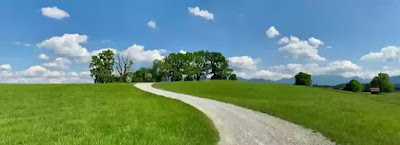Also Read
Bereft
Where had I heard this wind before
Change like this to a deeper roar?
What would it take my standing there for,
Holding open a restive door,
Looking down hill to a frothy shore?
Summer was past and the day was past.
Sombre clouds in the west were massed.
Out on the porch's sagging floor,
Leaves got up in a coil and hissed,
Blindly struck at my knee and missed.
Something sinister in the tone
Told me my secret must be known:
Word I was in the house alone
Somehow must have gotten abroad,
Word I was in my life alone,
Word I had no one left but God.
Summary and Analysis
Introduction:
The poem Bereft by Robert Frost from West Running Brook has some remarkable nature imagery but the natural setting is just a background to one of Frost's important themes in poetry. Illustration of nature is veil upon solitude. Finest bland of imagination on landscape portrayal in a cinematic manner.
Summary:
Isolation and loneliness form the theme of this poem. The speaker in the poem has suffered some bereavement. His complete loneliness - in the house and in life - is embodied in the bleak landscape. Nature's indifference and hostility seem to be symbolised in the darkening sky and the dead leaves rustling and swirling round his legs. He can think only of God, but it does not seem as if he will find much comfort there. The scene serves to emphasise that neither man can find a home in Nature, nor can he live outside it. All he can do is to look at facts of Nature and assert the reality of his spirit. The speaker recognizes in the landscape the full extent of his isolation, thus showing the mind's capacity for courage.
Critical Appreciation:
Bereft have an autobiographical element in them. Once Frost was all alone in a farmhouse in Salem, New Hampshire. Thirty years later he wrote this poem which Portrays beautifully the fear and other emotions that gripped him that day. He attributes animalistic, antagonistic qualities to his physical surroundings and achieves the effect of psychological terror. The speaker reaches a state where he feels that everybody and everything is against him. In his paranoiac fear he sees the leaves as snakes rising to strike him. For him Nature assumes an antagonistic human identity constantly spying and intruding upon him. The poem for all its unrelieved sense of isolation and gloom, and hint of terror, is not a, poem of despair. Nature covering the veil of shadow on the existence of living embodiment. The speaker acknowledge being entangled with nature, he detach himself to consolation of enjoyment. He feels captive in the vast sphere of nature.
